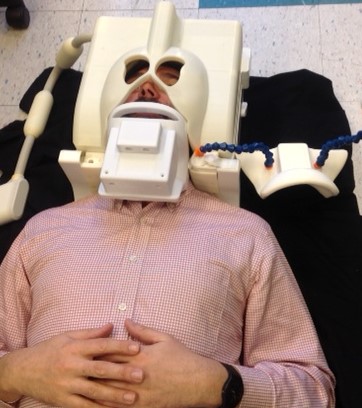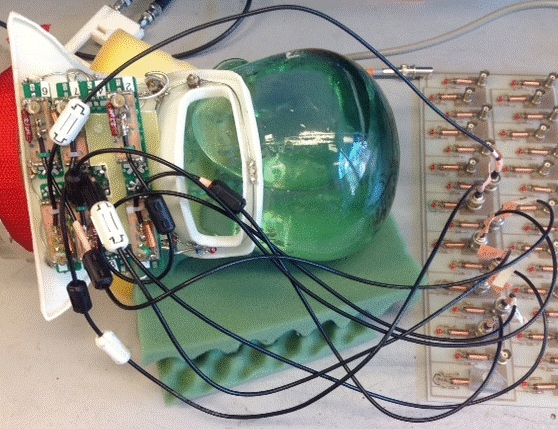Dr Warr has a background in communication systems and signal processing, and his research interests span many aspects and applications of electronics including integrated circuits, bio-electronic interaction and medical imaging. An EBI Senior Fellowship enabled Dr Warr to use his engineering background in addressing a clinical need for improving the ability to diagnose and categorise neurodegenerative diseases such as Alzheimer’s and Multiple Sclerosis that rely on clear magnetic resonance imaging (MRI) scans.
Bristol is already doing parallel work in this area at the Clinical Research and Imaging Centre but access to the US knowledge offered an opportunity to bring new skills to Bristol and fill the vacuum of expertise in the UK in MRI receiver design engineering. These receivers (known as Array Coils) are collections of dozens of small surface detectors that have to be positioned as close as possible to the patient to detect the extremely low-energy magnetic disturbances from the subject that are the basis of an MRI scan. These disturbance fields can be 1000 times less than that at the Earth’s surface, yet detection must be done in a static magnetic field that is greater by 20,000. Other major engineering challenges in producing detailed images of the brain include the suppression of both electrical noise and interference across the many detectors.
During his fellowship, Dr Warr produced a new detector-amplifier matching technique which means that each of the many detectors may be optimally tuned for its accompanying signal amplifier. This technique is now being developed further in Bristol to include dynamic control.
Dr Warr is now developing MRI receiver design within the Faculty of Engineering, University of Bristol and, working alongside researchers in the Faculty of Science, has negotiated access agreements with the MRI scanner manufacturer to allow his new designs to be tested and used in brain imaging research trials at the Clinical Research and Imaging Centre. Funding has been secured in collaboration with Bristol’s partner university, Cardiff, to create new improved imaging apparatus for brain imaging centres in both institutions.
The ability to design, assemble and use in-house MRI receivers crafted for specific human imaging research trials places Bristol at the forefront of this field and complements ongoing and future research carried out in the Clinical Research and Imaging Centre.

